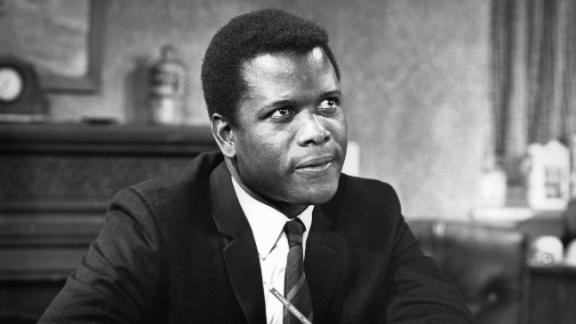
Tablet Staff
Sidney Poitier, Hollywood’s first Black movie star and the first Black man to win the best actor Oscar, has died at 94.
Poitier was so much more than a film legend – he is revered. Not just because of what he did on screen, but also because of his tremendous impact off-screen as a champion of civil rights.
“We believe in the essential dignity of every human being,” Poitier said.
The son of a Bahamian tomato farmer, raised Catholic, but ultimately became Agnostic, Poitier lived a life of firsts – the first Black man to win an Oscar for Best Actor and one of the first Black people to become a true Hollywood star, among the greatest of all time.
“We have lots, and lots, and lots of African American Actors,” Poitier said. “Now, when we didn’t have any – I appeared. Not because I brought so much, but because the time was right.”
But his career almost ended before it even began. As a teenager, Poitier auditioned for the American Negro theatre, but he was quickly thrown out because he couldn’t read, he was tone-deaf – and he had a thick Bahamian accent.
“He says, you’re no actor. We got next to the door. He opened it, pushed me out and slammed it,” Poitier recalled.
A determined Poitier would spend months perfecting his acting skills and modifying his speaking voice. His hard work would pay off in a big way.
“I was right, I know I was right,” Poitier said.
In the 1950s, he appeared in more than a dozen films beginning with “No Way Out” and including an Oscar nominated performance in “The Defiant Ones.”
However, it was his portrayal of a former GI, in the 1963 movie “Lilies of the Field,” that broke Hollywood’s color barrier – earning him the coveted Oscar for Best Actor.
Poitier never overcame his tone-deafness, lip-synching the song “Amen” in the famous “Lilies” scene.
The song’s writer – Jester Hairston – actually did the singing. Poitier was considered a bankable star in 1967, starring in the landmark film “To Sir, With Love” playing characters that would force audiences to confront racial prejudices.
“They call me Mr. Tibbs,” Poitier said in the film.
But he would also challenge the Hollywood establishment – forcing a change in his iconic role as Detective Virgil Tibbs in the 1967 Academy-award winning “In the Heat of the Night” – because of a scene that would require him to acquiesce to a racist character. That same year he would star in the watershed film “Guess Who’s Coming to Dinner?” alongside Spencer Tracy and Katharine Hepbern.
The film not only depicted a successful interracial relationship, it also foreshadowed future progress in America. It’s only fitting that in 2009, Sidney Poitier would be presented with the medal of freedom by then-President Barack Obama.
“Poitier once called his driving purpose to make himself a better person,” Obama said. “He did. And he made us all a little bit better along the way.”
